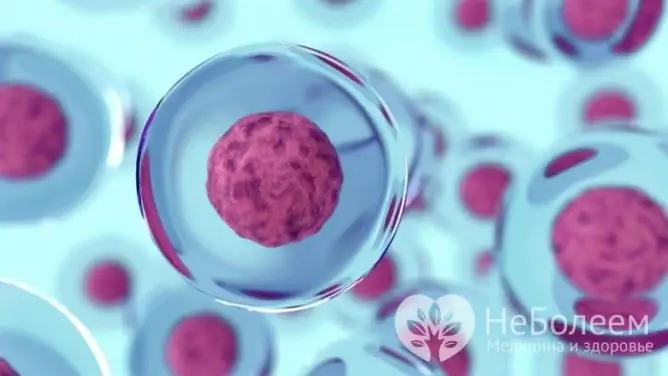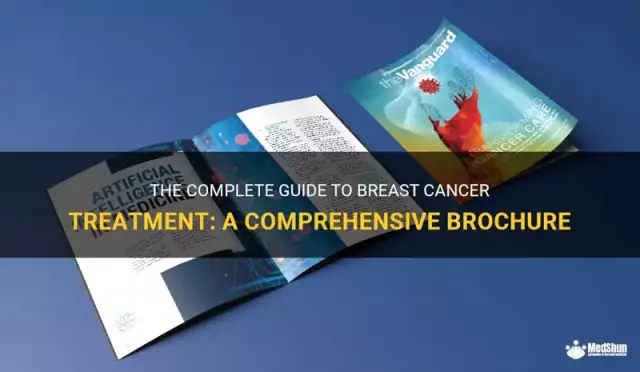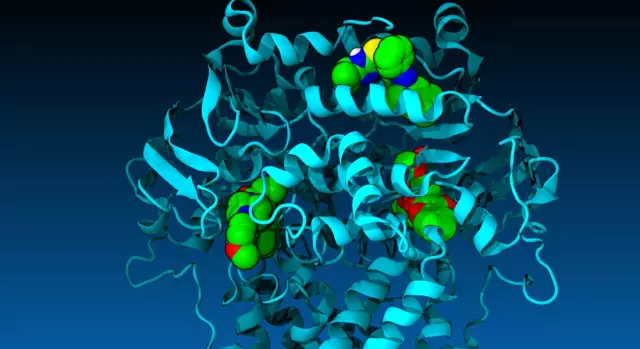- Author Rachel Wainwright wainwright@abchealthonline.com.
- Public 2023-12-15 07:39.
- Last modified 2025-11-02 20:14.
Oncologists' victory: 6 latest discoveries in cancer treatment
There are hardly any people in the world who have never faced cancer in their lives. The disease mows down friends, work colleagues, neighbors or those closest to you. The WHO reports that cancer is the cause of every sixth death, from which 9.6 million patients died in 2018. Today, the hopes of all those who have not been spared by oncology are associated with the creation of a 100% effective cure for cancer. The latest global advances in oncology are taking us one step closer to our dreams.

Below are 6 of the most significant recent discoveries.
- The effectiveness of CAR T-cell therapy has been confirmed. Based on materials from September 20, 2019, scientific and practical journal MedicalXpress, researchers from Stanford University (USA) evaluated the results of therapy over the years and called the technique a revolutionary breakthrough in the field of cancer treatment. Scientists have confirmed the effectiveness of treatment in 60-93% of patients with malignant neoplasms, which were previously considered incurable. The method worked most often in the case of acute lymphoblastic B-cell leukemia.
- Cancer is embedded in the neural network of the brain - this is evidenced by the results of 3 studies published on September 18, 2019. in the journal This ability of cancer cells is manifested in brain glioma and metastatic breast cancer. Brain tumors are difficult to cure due to the asymptomatic course and depth of penetration into the organ. Scientists at Stanford, Heidelberg Universities and the Swiss Institute have found that cancer cells remain in the shadows for a long time. integrate into the neural network, do not disrupt its activity and behave like neurons. The experiments continue. The result of scientific work, according to experts, will be the creation of new methods of cancer treatment. So far, it has been established that drugs for epilepsy slow down the growth of glioma in experimental mice.
- The mechanism of resistance of lung cancer to chemotherapy is disclosed. On July 15, 2019, American scientists from the University of Augusta published the results of a study that made it possible to track the process of lung cancer resistance to the effects of "chemistry". Increasing the concentration of the TIMP-1 molecule enhances the production of the IL-6 protein, which induces resistance to chemotherapy. To verify the results, data from patients with non-small cell lung cancer were analyzed. It was found that much higher survival in patients with low TIMP-1 and IL-6. The indicators worked only together, and the favorable level of only one of them did not affect the prognosis, the authors specified. The plans of the laboratory staff are to repeat the scenario for other types of tumors. The non-small cell type accounts for 80-85% of lung cancers. The revealed relationship opens up prospects for the treatment of the most hopeless patients.

- Mu Ta To Technology- a breakthrough in the treatment of malignant tumors. The development of the employees of the Israeli company AEBi is a combination of substances that is fatal for cancer cells. The multipurpose toxin selectively attacks damaged tissue without affecting healthy tissue. According to the chairman of AEBi, Dan Arilor, the toxic effect on atypical cells ensures the maximum result, which is visible already at the beginning of use. The therapy lasts several weeks, and no significant side effects are observed. The advantage of the method, the authors of the study explain, is the absence of pronounced side effects and a stable remission up to a complete cure for cancer. Note that the scientific community took Mu Ta To coolly. According to experts, the narrow profile of the drug, its focus on one type of tumor will not allow continuing the fight against mutations. Research continues,therefore, the startup still has a chance to collect the evidence base and make a revolution in cancer therapy.
- Prostate cancer can be cured in a couple of weeks. This conclusion was made by scientists at the London Cancer Research Institute and employees of the Royal Marsden NHS Foundation (UK). The technology shortens the treatment of prostate tumors from a few months to 7-14 days. The essence of therapy is the irradiation of the neoplasm with increased doses of radiation. SBRT stereotactic radiotherapy irradiates the tumor with millimeter precision. A targeted effect does not destroy healthy tissues and allows for the safe irradiation of cancer patients with 5-fold doses. The study involved 847 prostate cancer patients who were divided into two groups. The first 432 participants received standard radiotherapy - 39 doses of rays over 8 weeks. The second group of 415 patients underwent 5 sessions in 1-2 weeks using the SBRT method. The side effects of the treatment were identical.
- Cancer vaccine. Israeli and Portuguese biotechnologists have developed a vaccine that prevents or slows down the development of melanoma, an aggressive form of skin cancer. This is stated in an article published by Nature Nanotechnology. As you know, chemotherapy and other treatments can cause severe side effects. To avoid toxic effects on a weakened body, scientists propose a vaccine with nanoparticles of a protein identical to cancer cells. Cancer vaccination trains the patient's immune system to identify and destroy atypical cells without harm to the body. Clinical trials have confirmed the effectiveness of therapy: mice infected with melanoma after vaccination received immunity against the development of the disease. In the course of the second experiment, sick mice were inoculated: 70% of the inoculated mice lived for more than two months,and the unvaccinated rodents from the control group died within 30 days. Scientific work continues. If successful, the vaccine will hit the pharmaceutical market in 5-10 years.

Fortunately, cancer patients live three to four times longer than they expected every year, and the heavy artillery of anticancer drugs is giving way to safer and more effective sniper drugs. Where is the best treatment: at home or abroad? There is no universal answer, but to make a final decision, it is worth learning more about what treatment will be offered at the local and foreign cancer center. On the possibilities of Israeli oncology, statistics of the survival rate of cancer patients, read the link doktorisrael.ru/en/cancer/treatment/.
Found a mistake in the text? Select it and press Ctrl + Enter.






